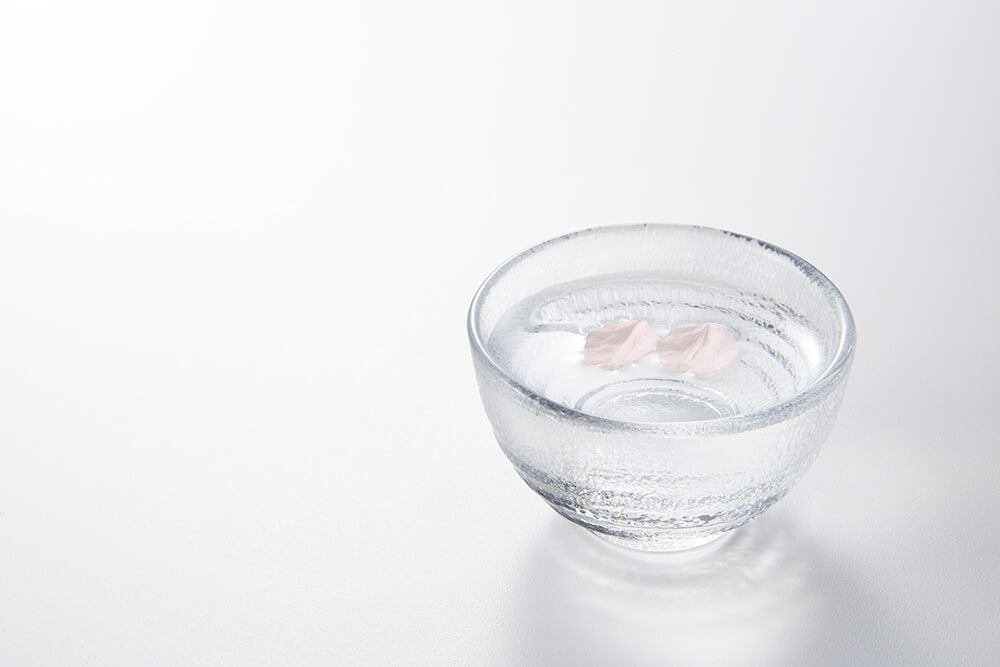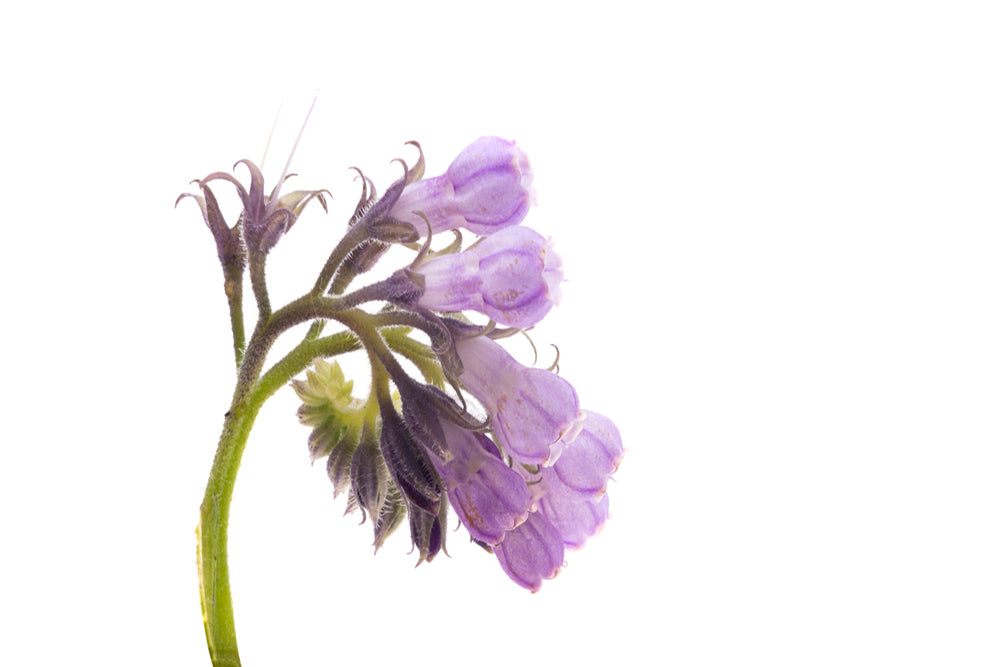
ingredient focus: sake

the bottom line
Sake is well-known as the national alcoholic beverage of Japan, but it also has a long tradition in beauty. Sake, or nihonshu, has been produced since 300 AD. Japanese head brewers, or toji, of sake are renowned for their soft, smooth hands, even into their old age, which has been attributed to the submergence of their hands into fermented rice during the brewing ritual. One traditional Japanese beauty regimen includes the use of sake baths which are believed to contribute to moisturized skin. Geisha use sake as a lotion to soften, brighten, and hydrate their skin. Keep reading to learn more about the science behind the beauty of sake.
first layer: the history
What is sake? Sake is a Japanese liquor which has been produced for centuries, with approximately 1800 breweries still in operation.
Sake production begins with rice that has been polished, washed, soaked and steamed. A portion of this steamed rice is used to produce koji. Koji spores are added to the rice, which is mixed by hand regularly over three days. The result is koji, an enzyme-rich cultured grain. Some of the koji is then combined with additional steamed rice, water, and yeast. Two weeks later, the result is shobu which acts as a yeast starter. Using shobu as the base, small amounts of rice, water and koji are added in stages and fermented over 18-32 days. This mixture is finally filtered, leaving both a liquid sake and a solid sake kasu (or dregs).
Other products derived from the sake production process include fermented rice water, also known as ferment filtrate. Galactomyces ferment filtrate, trademarked as Pitera, is rich in vitamins, minerals, amino acids, and organic acids.
second layer: the science
Sake has been shown in scientific studies to possess significant activity at the cellular level.
- inhibition of melanin* production: Sake extract treatment has been shown to significantly inhibit the production of melanin, the dark brown to black pigment which occurs in the hair and skin. Tyrosinase, the rate-limiting enzyme of melanogenesis, is also decreased. In one study, topical application of a product with sake extract improved skin lightness significantly within 7 days. Skin redness and yellowness also decreased to a lesser degree.
- activation of natural moisturizing factors: Galactomyces ferment filtrate (GFF) has been shown to upregulate the expression of filaggrin* in epidermal keratinocytes*. Filaggrin is a filament-aggregating protein which undergoes further processing in the stratum corneum to release free amino acids which assist in water retention.
- antioxidant: GFF has also been shown to activate nuclear factor erythroid-2-related-factor 2 (NRF2), the antioxidative master transcription factor. It exhibits potent activity against oxidative stress induced by ultraviolet radiation and pro-inflammatory cytokines*. Moisturizers with GFF have been shown to increase skin hydration and decrease transepidermal water loss. Other trials have demonstrated that the topical application of GFF improves facial redness, skin roughness, and pore size.
- permeability barrier augmentation: GFF has been shown to enhance attachment between keratinocytes by increasing the production of the tight-junction molecules claudin-1, claudin-4, occludin, and ZO-1.
- anti-inflammatory: GFF is known to increase production of anti-inflammatory cytokine IL-37. IL-37 is able to inhibit the pro-inflammatory process induced by a range of stimuli.
third layer: sake in skincare
Reported benefits of sake and products from the fermentation process include the following:
- brightening: kojic acid, a fungal metabolic product derived from koji, is an antioxidant which helps to brighten skin by inhibiting the production of melanin. It has been shown to decrease discoloration of skin and hyperpigmentation while evening skin tone.
- acne: sake acts as a natural astringent by decreasing the production of sebum and decrease the appearance of pores.
- hydration: the amino acids contained within sake, including glutamic acid, help to maintain hydration of the skin.
- exfoliation: Sake contains alpha hydroxy acids, well-known for their ability to minimize the appearance of enlarged pores and minimize fine lines. The high concentration of amino acids helps to smooth skin texture and maintain skin elasticity.
- antioxidant: sake contains ferulic acid, an antioxidant demonstrated to neutralize free radical damage secondary to ultraviolet light and pollution.
- elasticity: another compound produced during the fermentation process is alpha ethyl D-glucoside, or alpha-EG, which helps to stimulate collagen* production. Studies have also demonstrated that it suppresses skin roughness following ultraviolet radiation, decreases transepidermal water loss, and promotes skin moisturization.
- skin barrier protection: both alpha-EG and GFF protect the skin barrier by enhancing the junction between keratinocytes and decreasing transepidermal water loss.
fourth layer: how we do it
We love the history and science of sake, and have incorporated it into our men’s skin range, anokha man. Our sake & sandalwood lotion is a gentle facial lotion for sebum-rich, testosterone-charged skin that layers sake filtrate, rice bran, allantoin, sandalwood, and bergamot to deeply nourish and visibly refresh skin. Consider it a stiff drink to combat skin dryness.
All this and more at www.anokhaskincare.com .
xx
anokha
references:
- https://www.slowsoak.com
- https://www.shikobeauty.com
- https://www.thejbeautycollection.com
- Hwang J, Goh M, Kim E, et al. Identification of sake extract as a new anti-melanogenic ingredient by in vitro and clinical trials. Nat Prod Commun 2013; 8(11): 1605-1608.
- Kitagaki H, Kitamoto K. Breeding research on sake yeasts in Japan: history, recent technological advances, and future perspectives. Ann Rev Food Sci Tech 2013; 4: 215-235.
- Yan X, Tsuji G, Hashimoto-Hachiya A, Furue M. Galactomyces ferment filtrate potentiates an anti-inflammaging system in keratinocytes. J Clin Med 2022; 11: 6338-6352.
- Miyamoto K, Dissanayake B, Omotezako T, et al. Daily fluctuations of facial pore area, roughness and redness among young Japanese women; Beneficial effects of Galactomyces ferment filtrate containing antioxidative skin care formula. J Clin Med 2021; 10: 2502.
- Uno, T, Itoh, A, Miyamoto, T, et al. Ferulic Acid Production in the Brewing of Rice Wine (Sake). J Instit Brew 2009; 115: 116-121.
definitions:
collagen: a fibrous protein that forms part of the dermal matrix, connective tissue, cartilage, and bone
cytokine: a substance secreted by cells of the immune system, which in turn affects other cells
filaggrin: a filament-aggregating protein which undergoes further processing in the stratum corneum to release free amino acids which assist in water retention
keratinocytes: the primary cell of the epidermis, which constitutes 90% of epidermal skin cells. keratinocytes form a barrier against environmental damage and are shed every 45-60 days.
melanin: a dark brown to black pigment which occurs in the hair, skin, and iris of the eye. It’s also responsible for the skin’s ability to tan when exposed to sunlight.
faq’s:
what is sake?
sake is a Japanese liquor which has been produced for centuries. it has numerous skincare benefits which include skin brightening, acne control, exfoliation, and skin barrier protection.



Laisser un commentaire
Ce site est protégé par hCaptcha, et la Politique de confidentialité et les Conditions de service de hCaptcha s’appliquent.